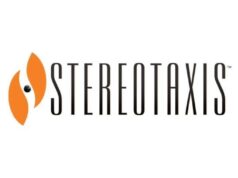ARCA biopharma, a biopharmaceutical company developing genetically-targeted therapies for atrial fibrillation, heart failure and other cardiovascular diseases, has provided an update on a proposed, genetically-targeted clinical trial in atrial fibrillation (AF) of the company’s lead developmental drug, Gencaro (bucindolol hydrochloride). The company also announced that Medtronic has signed a non-binding Letter of Intent to collaborate on the initial, phase 2B portion of the proposed trial.
The trial, known as GENETIC-AF, is projected to be a 620-patient, phase 3 study comparing Gencaro to metoprolol CR/XL for prevention of atrial fibrillation in patients with heart failure and left ventricular dysfunction (HFREF). The trial is planned to be genetically enriched by enrolling only those patients who possess the cardiac beta-1 adrenergic receptor genotype 389 arginine homozygous, which in the BEST (Beta blocker evaluation of survival trial) was associated with an enhanced response to Gencaro in preventing atrial fibrillation.
The company estimates that this genotype is present in about 50% of the US population. The primary endpoint of GENETIC-AF is planned to be the combination endpoint of recurrent symptomatic AF and all-cause mortality, over 24 weeks post electrical cardioversion for persistent AF. Commencement of the GENETIC-AF is conditional on receipt of the necessary funding, which ARCA intends to secure through equity financing or a strategic partnership.
ARCA has created an adaptive design for GENETIC-AF, under which the company plans to initiate a phase 2B study in approximately 200 HFREF patients. Depending on the results of the phase 2B portion, the trial could then be expanded to a phase 3 study by enrolling an estimated additional 420 patients. A secondary endpoint of the proposed phase 2B portion of the trial will be AF burden, defined as a patient’s actual time in AF, regardless of symptoms. Under the company’s proposed design, all 200 patients in the phase 2B portion of the trial will have AF burden measured by continuous monitoring, either by previously implanted cardiac resynchronisation or defibrillation devices, or newly or previously inserted implantable loop recorders. At the end of enrolment of the first 200 patients, the primary endpoint of recurrent symptomatic AF and all-cause mortality, and the secondary endpoint of AF burden will be evaluated by the trial’s Data and Safety Monitoring Board for evidence of an efficacy signal. If a sufficient efficacy signal is detected and acceptable safety is observed, the trial would then proceed to the phase 3 portion and full enrolment.
ARCA believes that Gencaro has potential as a treatment for AF, based on placebo-controlled data from the phase 3 heart failure BEST study. A retrospective analysis of data from the BEST trial shows that patients with the genotype that ARCA plans to enrol in GENETIC-AF had a 74% reduction in the risk of AF compared to placebo (p = 0.0003). These same patients experienced a 38% reduction in the risk of all cause mortality (p < 0.05) and statistically significant improvements on other major clinical efficacy endpoints.
In HFREF patients, the approved therapies for the treatment or prevention of AF have disadvantages, such as toxic or cardiovascular adverse effects, and most of the approved drugs are contra-indicated or have warnings in their prescribing information. ARCA believes there is an unmet medical need for new AF treatments that are safe and more effective in the HFREF population at risk for AF.
ARCA has received guidance from the Food and Drug administration (FDA) regarding a phase 3 clinical study comparing Gencaro to metoprolol for the prevention of AF in approximately 600 HFREF patients, with a design similar to GENETIC-AF, but without an adaptive feature. Based on this FDA guidance, the company believes that a successful phase 3 clinical study similar to GENETIC-AF, with a p-value of less than 0.01, could be sufficient evidence of efficacy upon which to base a new drug application for the approval of Gencaro for an AF indication in HFREF patients. ARCA plans to obtain further guidance from the FDA, which may affect the trial’s design.
The proposed collaboration with Medtronic involves a substudy of the phase 2B portion of GENETIC-AF that will measure the AF burden data by means of the continuous monitoring devices. Under the proposed collaboration, Medtronic would provide support associated with the AF burden substudy and with collection and analysis of the substudy data.
Michael Bristow, president and CEO of ARCA, said: “We at ARCA are excited about the new adaptive design for GENETIC-AF and the potential to use AF burden measured by previously implanted devices as well as by newly inserted implantable loop recorders, which we believe represent the next generation of diagnosis and treatment options for patients at risk for AF. AF is a serious disorder that increases the risk of stroke and mortality, and in HFREF patients often heralds the worsening of heart failure. There is a need for new treatment options, particularly for patients with HFREF. The GENETIC-AF trial has the potential to result in an approvable new therapy that is safe and effective for HFREF patients at high risk for AF. We believe that the use of continuous monitoring devices including implantable loop recorders to monitor AF burden in the phase 2B substudy will result in many more clinically-relevant events, which will potentially increase the power and usefulness of the data. We believe that AF burden used in conjunction with drug therapy will become an increasingly important tool in the diagnosis and treatment of AF.”









